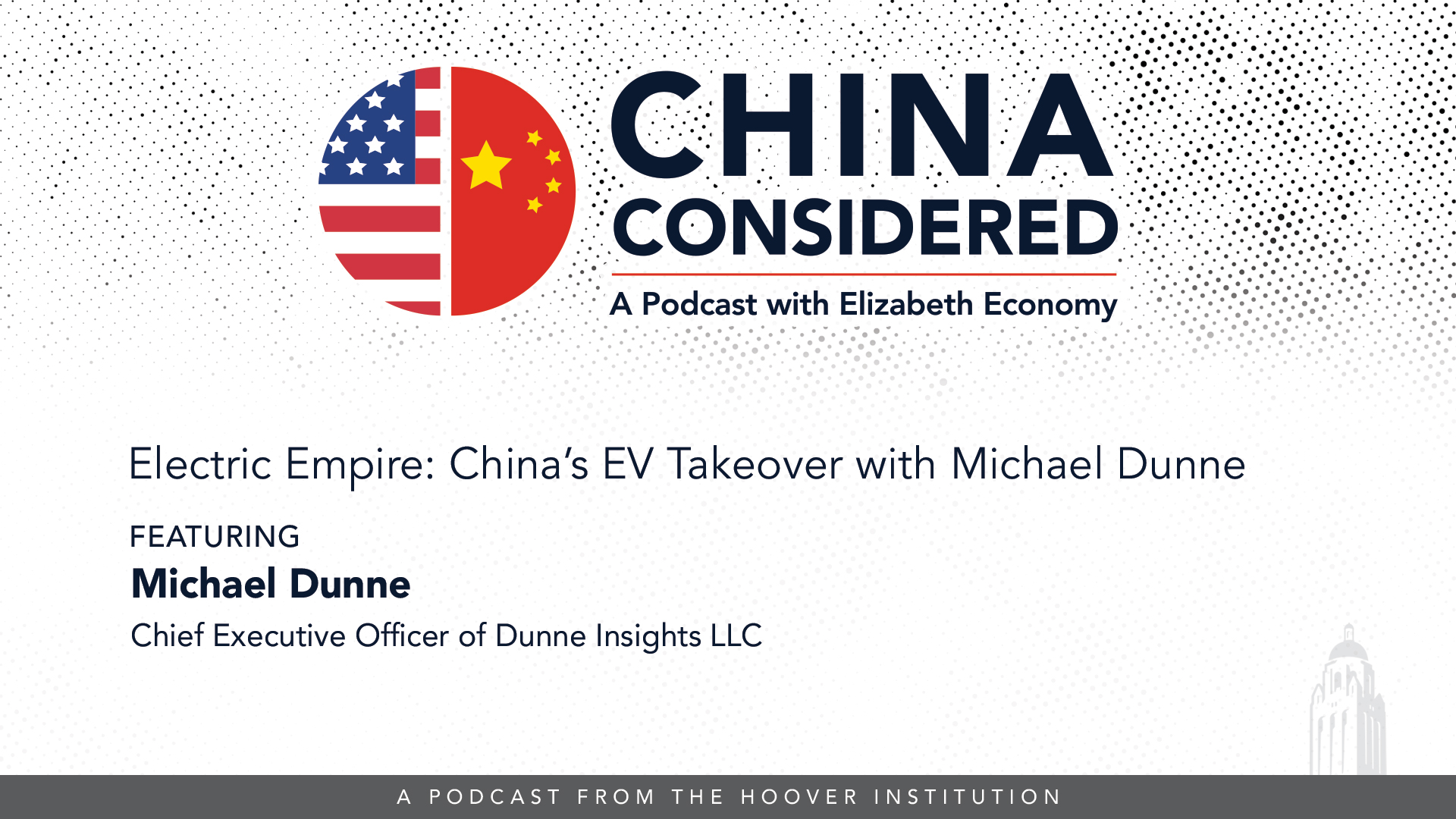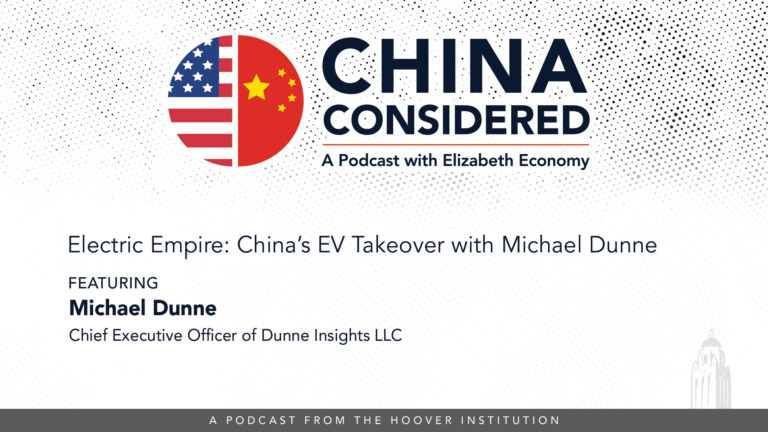Transformation of the Chinese Automobile Industry
Longtime friends Dr. Elizabeth Economy and Michael Dunne discuss the transformation of the Chinese automobile industry and the rise of electric vehicles (EVs). Dunne details the early days of China’s EV revolution, which came to fruition at the 2023 Shanghai auto show, making China a global leader in EVs.
The conversation shifts from climate change and green energy to national security and critical supply chains. They explore how America can compete in this rapidly changing industry by ‘getting out of its comfort zone.’ The discussion was recorded on April 17, 2025.
Early Days of Chinese Automotive Industry
Dunne reflects on his experience since the early 1990s in the Chinese auto industry. He notes that China’s rise to global supremacy in cars was unexpected and compares it to a ‘miracle.’ The industry transformed from being ‘hopeless’ to becoming a ‘perennial powerhouse.’
Government Role in China’s Success
Dunne emphasizes the central role of the Chinese government in setting rules and ambitions. Deng Xiaoping’s visit to the US and Japan in 1980 inspired the development of a strong auto industry in China. The government formed joint ventures with foreign companies, ensuring at least 50% Chinese ownership.
Rise of Electric Vehicles in China
The shift to EVs began around 2010, with significant government investment. Tesla’s entry into China in 2020 was a turning point, changing consumer perceptions of EVs. Chinese automakers quickly followed Tesla’s lead, producing high-quality, affordable EVs.
Global Competition and US Response
China now dominates the EV market and is a significant exporter. BYD surpassed Tesla as the largest EV manufacturer in 2024. The US has imposed tariffs to protect its market, but Dunne suggests that the US needs to become globally competitive, particularly in emerging markets.
Challenges and Future Directions
The US faces challenges in generating demand for EVs and investing in battery supply chains. The current administration’s stance on clean tech and EVs is uncertain, potentially hindering the US auto industry’s competitiveness.
Conclusion
Dunne and Economy discuss the need for the US to ‘get out of its comfort zone’ and become globally competitive. They touch on the possibility of a breakthrough in US-China relations under the Trump administration, with Dunne rating the likelihood as ‘negative two.’




